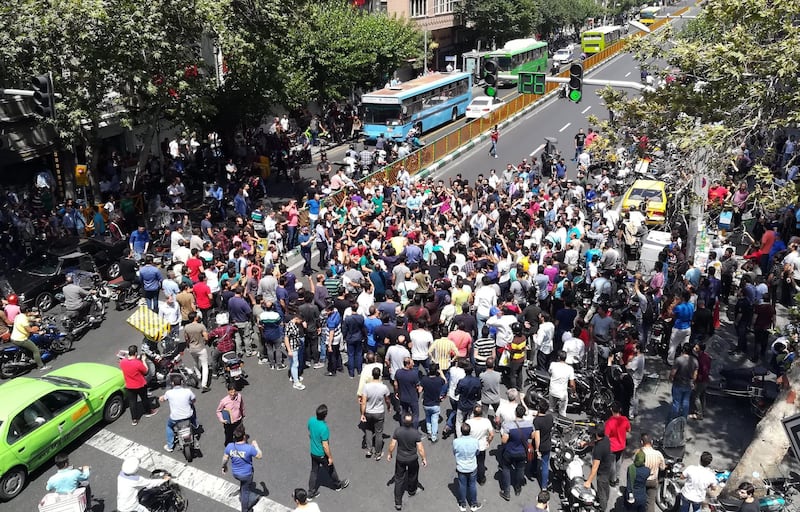Since the 2006 war with Israel, Hezbollah has partnered Iran in furthering its imperial ambitions in the region. The extent of that murky alliance became apparent this week when the Saudi-led coalition fighting to re-establish the legitimate government in Yemen announced eight Hezbollah members, including a commander, were among 41 terrorists killed in the Houthi stronghold of Maran near the Saudi border. The Iran-backed militant organisation has helped secure the murderous regime of Bashar Al Assad in Syria. Now it is in Yemen to advance the agenda of its Iranian sponsors, who fund it to the tune of an estimated $700 million every year. As Hezbollah chief Hassan Nasrallah admitted in 2016: "As long as Iran has money, we have money."
Tehran has been arming and financing Houthi rebels as part of its mission to destabilise the Arab world in service of its ruinous quest for regional hegemony. As it arms terrorists and fuels conflicts abroad, at home ordinary, working class Iranians will this week mark six months of protests against a failing economy, increasing corruption and hardships, including an unemployment rate of more than 30 per cent for those aged under 30. Rubbing salt into the wound, soaring fuel prices and cuts in subsidies have been matched by more than $850 million going to the Iranian Revolutionary Guard Corps and hardline religious foundations. On Monday, Tehran's Grand Bazaar echoed with the voices of ordinary Iranians protesting the nation's imploding economy. "Let go of Syria – think of us," they chanted, as the regime's officials fired tear gas at them. Yet still, Tehran insists on sponsoring terrorism by depriving Iran's citizens of the most basic services. According to Staffan de Mistura, the UN's special envoy for Syria, Tehran has spent up to $35 billion annually on defending Mr Al Assad since the Syrian war began.
When Iranians have protested, the regime has responded with force. The resources of Iran's people are being robbed to realise the imperial ambitions of a parasitical ruling elite. The Iranian currency, meanwhile, has dropped to a new nadir: a single US dollar sold for 87,000 rials on Sunday, conveying the desperation of people to preserve what they can from a regime that has presided over their degradation. By punishing its own people and promoting instability abroad, the Iranian regime has sown the seeds of discontent among a people who deserve a government that puts them first.





